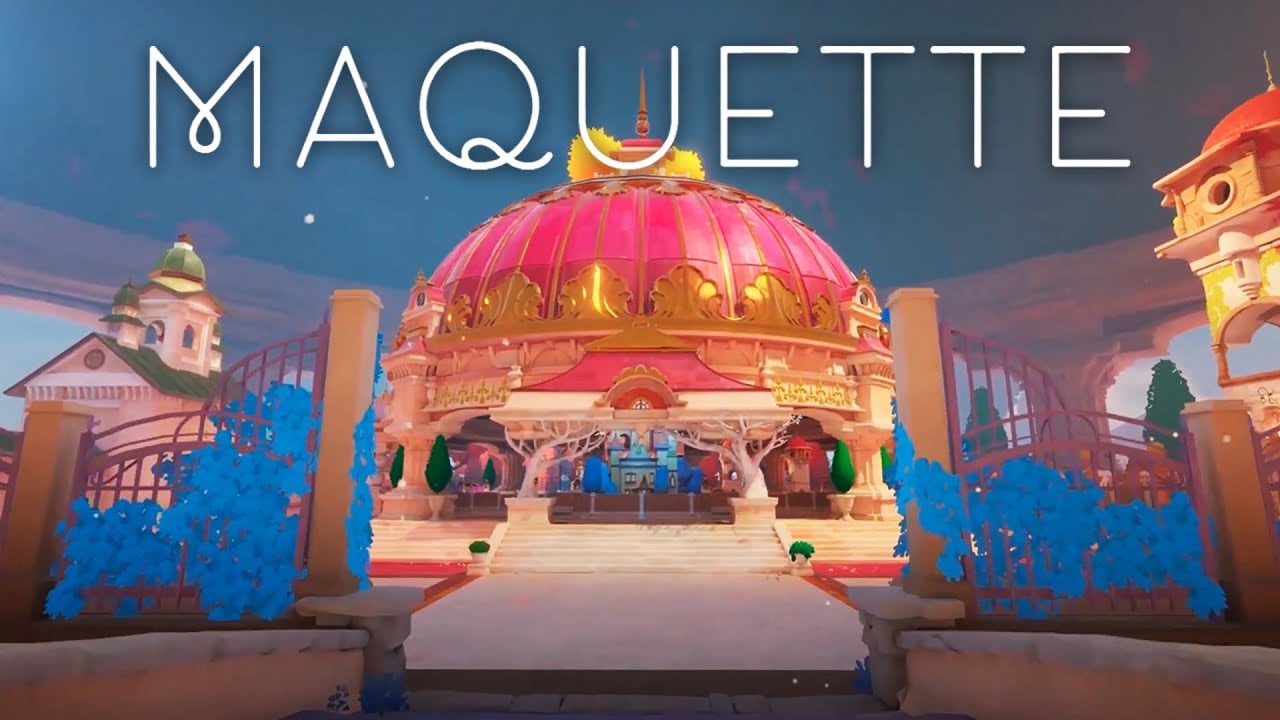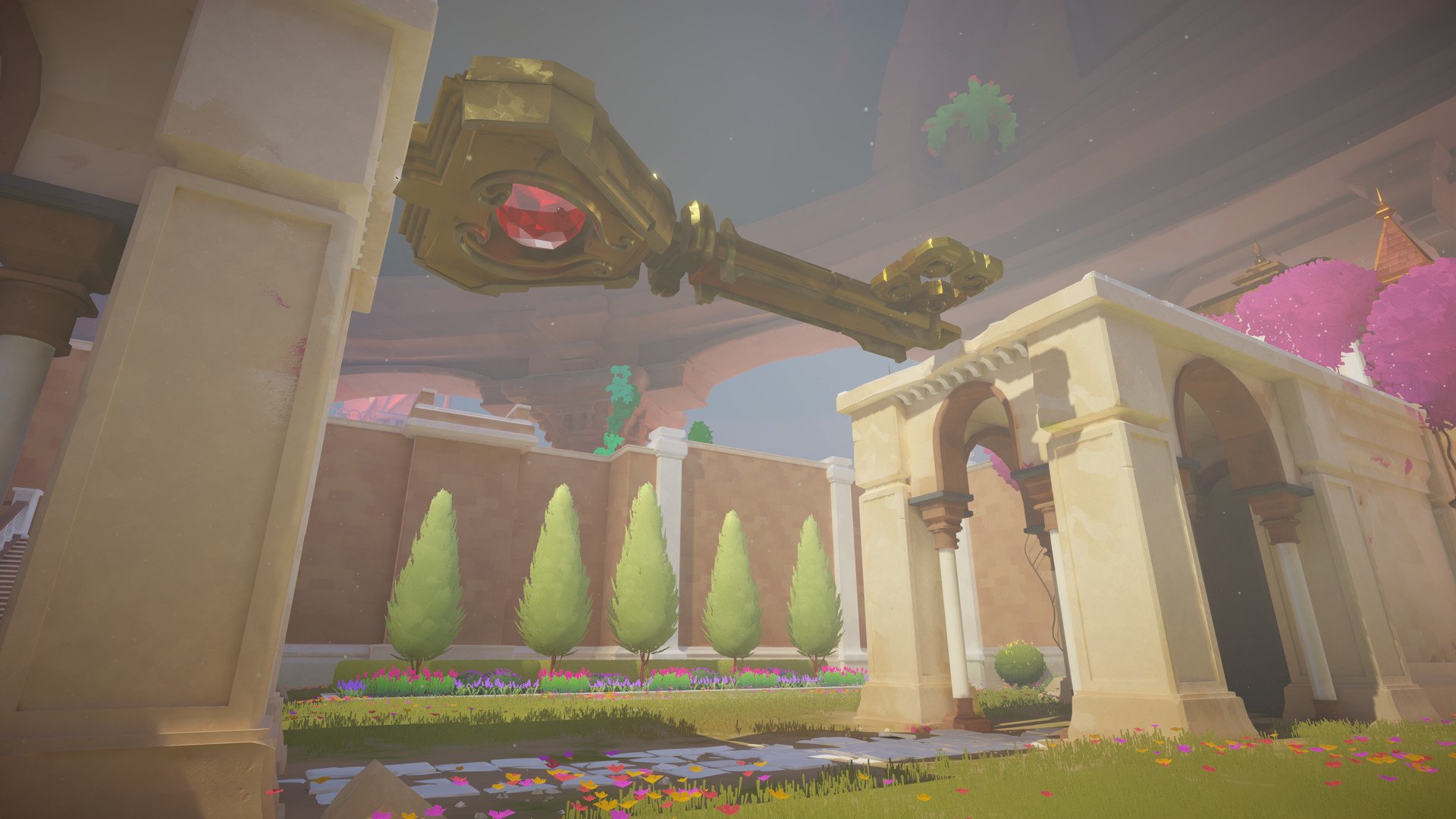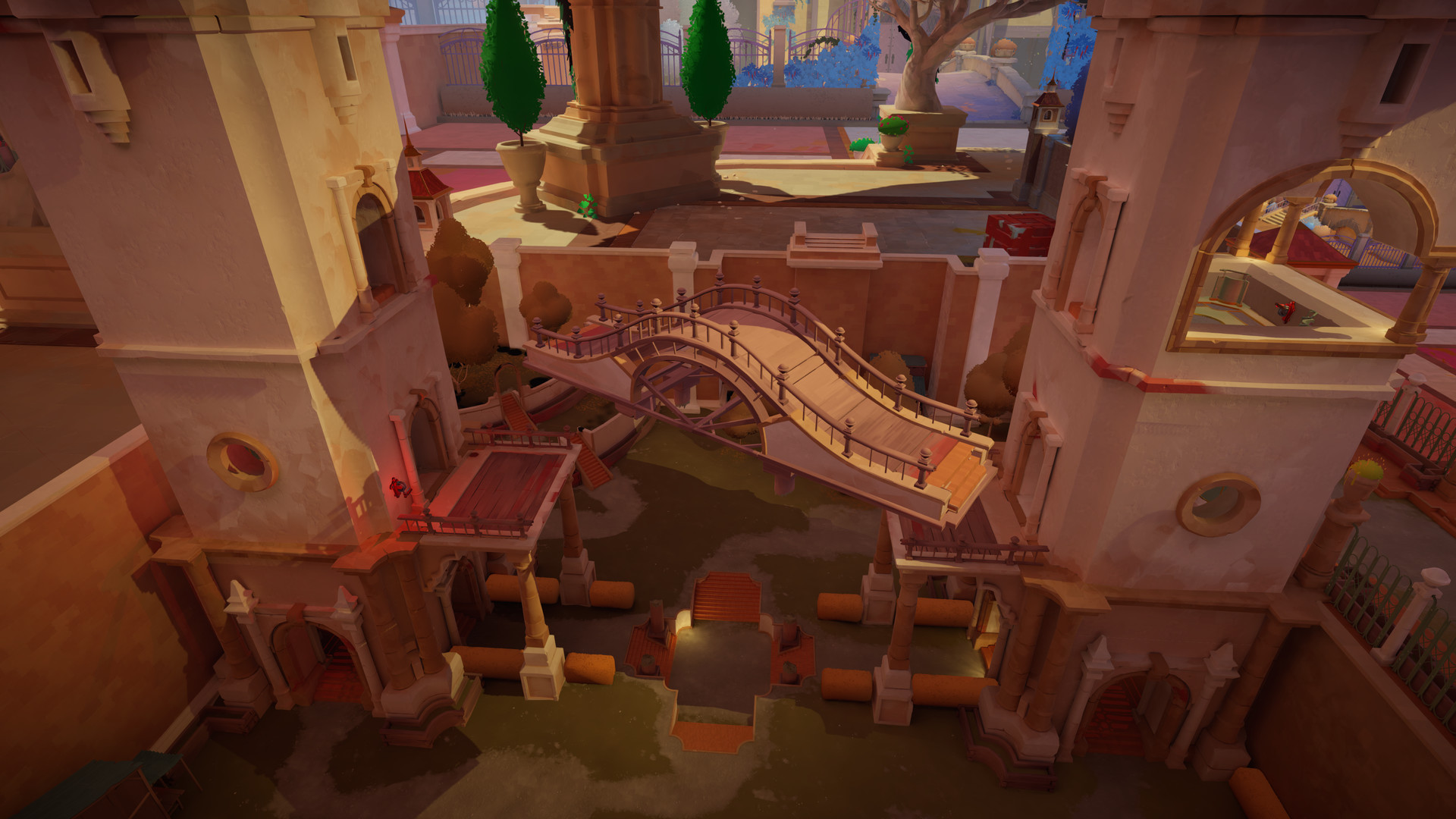Games are mostly built with two endgames in mind. They’re either designed to keep you playing forever — like live-service games — or they’re meant to tell stories in one go, where the end credits likely mean you’re onto your next gaming adventure.
Maquette is a first-person puzzle-adventure game, so naturally, it would seem to fit in the latter category, but that assumption may steer you wrong. Rarely have I played a game that has stumped me so early and often as Maquette.
Beyond its puzzles, there is a brief but poignant story being told with a pair of great Hollywood actors in the starring roles. Despite that, it’s ironically painstaking to get to the end of this story of emotional closure.
Maquette Review: Love and What Comes Next
Maquette is built in Matryoshka fashion. Before you stands an ornate reddish dome, housing several buildings beneath its extravagant roof. Above you, though, is the same dome you look down upon, and you too are flanked by life-size versions of the diorama you see below.
If ever you’ve sat in a barber or hair salon and looked into an endless reflection of mirrors behind and in front of you, Maquette is like that, and it will melt your brain. An infinite reflection of smaller and bigger versions of your world. If it’s hard to explain, it’s even harder to unravel in-game.
The closest touchstone I know of is 2020’s Superliminal, but if you think about Maquette‘s solutions in the way that game had you doing, it will often prove costly. Maquette‘s puzzle logic routinely shifts, which is a big reason the game spun me in circles for so long. It almost feels unfair and at least feels less clean-cut than something like Portal, which all first-person puzzlers seem to unfairly be linked to eventually.
Trailers indicated the game would be about tweaking the little world at your feet to alter the one you live in and vice versa, and at first, it is about that. But only until it’s not.
While the first and third of six puzzle areas are mostly about this Russian doll format, the second puzzle adds a one-off mechanic involving gemstones that unlock doors when they’re equipped. Later puzzles also add things like crystal balls that reveal hidden pathways and even allow you to move the entire dome at once, manipulating the world in your hands as yours spins in unison.
After the initial awe I felt marveling at the remarkable and unique scene, some puzzle solutions became so obscure that they elicited mostly frustration. This dampened my enthusiasm not because I got stuck — I don’t mind and even expect to get stuck on most puzzle games at points — but because Maquette is so unpredictable. There’s no centralized logic to the puzzles, at least not throughout.
One in particular involving a flight of stairs is so obtuse that I don’t know how I would’ve solved it without the guide I was provided in the final hours of my review time.
A first-person puzzler that frustrates with its puzzles doesn’t sound promising, and yet, this is an Annapurna-published game, so you should expect another layer to it. That layer, its story, salvages the game quite a bit. The entire cast is two people, both of whom you only ever hear, though you may recognize them as Bryce Dallas Howard (Jurassic World, The Village) and Seth Gabel (Fringe, Salem) as Kenzie and Michael respectively.
From the moment their meet-cute unfolds in a coffee shop, Maquette has the saccharine quality of the rom-coms we’ve all seen dozens of times, but the story wouldn’t be notable if they simply lived happily ever after. Howard and Gabel deliver intimate, sometimes even emotionally exhausting performances as a doomed couple, and it’s no wonder they display such impressive chemistry when you learn they’re married in real life.
The way the game visualizes only bits of what they’re saying like they’re images in Michael’s sketchbook gives it a near audio drama presentation, where the chatter of a coffee shop or the slamming of a laptop paint the scene in our minds while the pair expertly portray their wounded lovers.
Scattered in between their voice work are words written into the world a la Edith Finch, chronicling their relationship as a firsthand account. These words come to mean so much more by the game’s ever-elusive end credits, and it was that reveal which had me looking back on Maquette more favorably than I expected — even just moments before it ended.
Well-placed licensed music and a touching original score combine to fill the soundscape with more expertise, meaning it’s a game that always looks and sounds excellent. It just doesn’t always play that way. It’s not often I wish a game held my hand more, but Maquette feels impenetrable at times, and as it’s launching in PS Plus this March, I wonder how many players may bail on it who otherwise would not have if they’d just been given a bit more of a hint once in a while.
Maquette Review — The Bottom Line
Pros
- Authentic, heartfelt voicework
- A lovely sketchbook/audio drama presentation
- Great music, both original and licensed
Cons
- Puzzles can be extremely obtuse and unwieldy at times
Maquette is a realistic, empathetic portrayal of two people falling in love and what comes next. If it was only that, it would make a great audio drama, or with some tweaking, a touching movie or book. But it’s a game, and despite the awe-inspiring first impression it delivers, the cagey puzzle logic can leave you more hopeless than the central pair’s prospects for longevity.
Maquette is a game I loved to look at and listen to, and it’s a game I’ll remember fondly for its subversion of romantic fiction tropes, but it wasn’t usually a game I liked actually playing.
[Note: Annapurna Interactive provided the copy of Maquette used for this review.]










Published: Mar 1, 2021 01:57 am